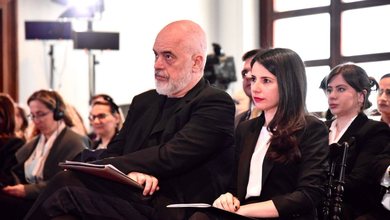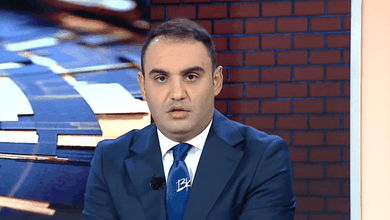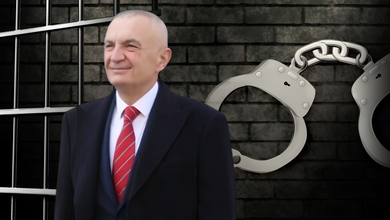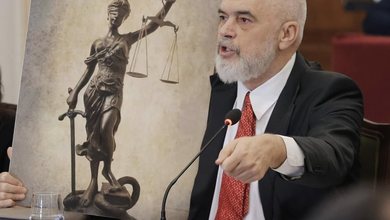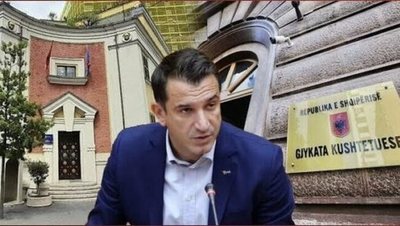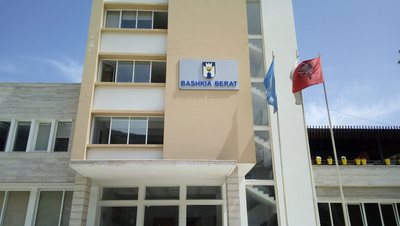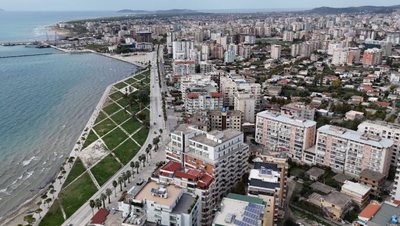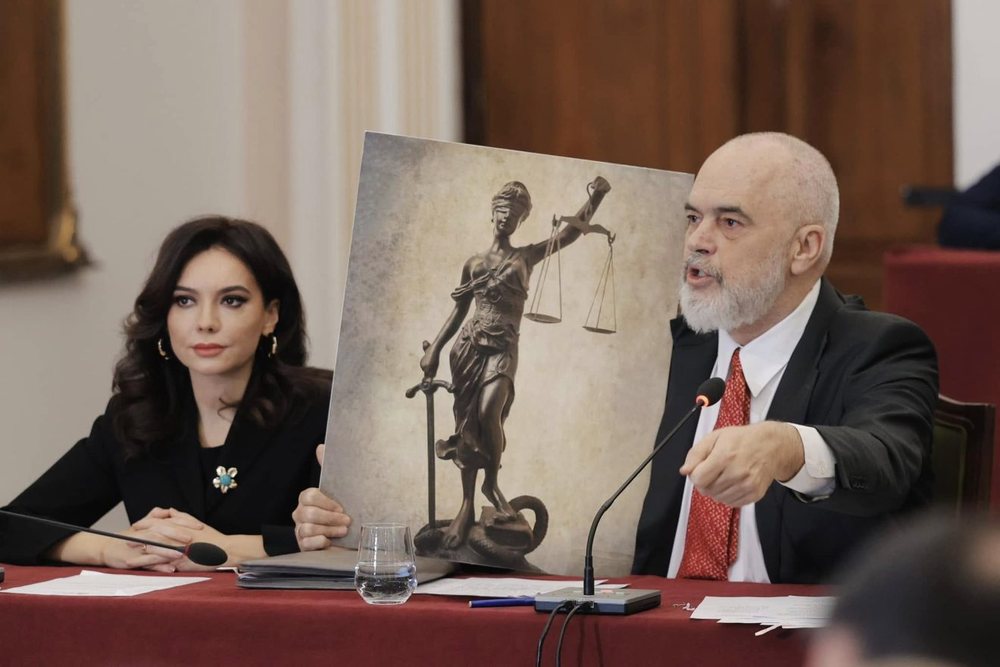
Prime Minister Edi Rama insinuated on Friday, without providing evidence, that a judge of the Tirana Administrative Court must be corrupt, because otherwise, according to Rama, there is no logical explanation for a decision he made following a citizen’s request. Earlier, Rama declared another judge an “enemy of the state” after publicly insulting him as “shameless.”
Both decisions, which Rama does not like, are "measures for securing lawsuits", a temporary legal instrument that is taken to freeze things as they are until a trial on the merits of a dispute, and in both cases, citizens have complained in court about the actions of Rama's administration, which they have judged to be unfair towards them.
The harsh language of the Prime Minister towards the judges, as well as the fact that the decisions he criticizes have little relevance for society at large, seem to suggest that the Prime Minister needs to create the spectre of the internal enemy, an ugly political instrument used throughout human history. But the bullying of the judges of the Administrative Court by a politician is likely to have long-term consequences for fundamental human rights and freedoms.
On the other hand, the Prime Minister's use of information asymmetry, i.e. the fact that he has a large source and a subservient media, as well as the provision of fragmentary misinformation from cases under trial, such as the publication of a single paragraph from a thirty-page decision, is indicative of the deplorable state of the country's information environment.
The Administrative Court, as its name suggests, is the place where citizens and businesses go to claim a right that they believe the public administration has denied them. The judges’ duty is to adjudicate citizens’ claims and to stop illegal actions by the administration, or to order the administration to perform its legal duties when it fails to do so. In this context, declaring a judge an “enemy of the state” is likely to have a chilling effect on the judge in question and other judges, who, before taking a decision to protect a citizen’s right against the state, must consider the risk of being publicly insulted and denigrated by the prime minister through his numerous sources in the form of the servile media.
The general perception is that judges in Albania already tend to "keep it nice with the state" when reviewing citizen complaints against the public administration, while Rama's claim that a judge who gives the citizen a right, with a decision to secure a lawsuit, must necessarily "have eaten" something, or be "shameless", suggests, against logic, that our public administration is so excellent, so infallible and so fair, that it does not need judicial oversight.
Albania has a totalitarian history and the concepts of the rule of law are not very well established. So perhaps it is worth recalling some elementary things, the existence of Jean-Jacques Rousseau, the eighteenth-century French philosopher, whose logic for the separation, limitation and balancing of powers in a state, created the modern state to which we also aspire, perhaps unconsciously, through the objective of integration into the European Union.
Rousseau conceived of the judiciary as an independent institution that oversees the executive, i.e. Rama, and from here comes the concept embodied in article seven of our generally unread constitution, “the separation and balance between legislative, executive and judicial powers.” In this context, the judge who decides that the citizen is right and the administration is not, can hardly be called an “enemy of the state” because, after all, the judge is one of the three pillars of the “state.” By declaring the judge an “enemy,” it seems as if the prime minister is equating himself with the “state.”
The Justice Reform has currently produced some tangible results and some that require a sharper eye to see. What is visible is the number of Rama's close associates who have ended up behind bars or on the run. What has not been adequately appreciated is the even greater number of investigations against very powerful criminal groups.
Other results should in fact be sought in the appeals of Rama and his clientele against several court decisions, which, to be honest, are not numerous. The decision to dismiss Rama's defamation claims by Lulzim Basha in January of this year is one case. Another judge's decision in favor of the News 24 journalists is another.
We are in the first steps in which judges, not only those of the GjKKO, who have made the conviction decisions or have enabled prosecutors to raid the homes of those in power in search of evidence, but also others, in ordinary courts or administrative courts, are making decisions in which the powerful lose and the powerless win. Anyone with a little memory knows that the history of Albania has been different . Repeatedly in the past, judges have sided with the government, regardless of who happens to be in power, against the opposition and against the citizens.
In the end, it is easy to imagine why the prime minister is trying so hard to find an internal enemy, and to find it in the judiciary. The attack on Judge Klarent Demiri on Friday and on Judge Hazbi Balliu two weeks ago , or on Judge Engjëllushe Tahiri in June, can hardly be seen as part of the broader dissatisfaction that current and former officials have, for reasons that are easy to imagine, with the judiciary.
These are the concerns that have led some renaissance leaders to make surprising statements like "prosecutors are out of control" (as if prosecutors must be under control for justice to be called that) or, "SPAK is like State Security", or that ministers have fallen into difficulties and state affairs have been blocked because officials under them are no longer blind people who sign without being asked. These explain Rama's frontal attack quite well, not only against some judges, but against the justice system as a whole.
These are attacks that will most likely further delay the objective of Albania's integration into the European Union, and the fact that Rama is finding not-so-major issues, such as the decisions to secure lawsuits for two minor matters in Tirana, to declare the judiciary "enemy", raises questions about whether he is for or against the country's integration into the EU./Reporter.al


